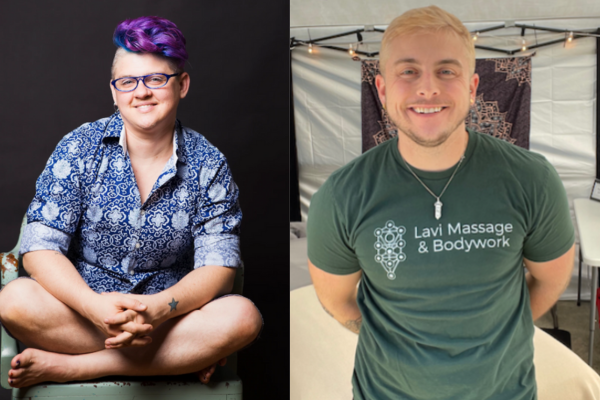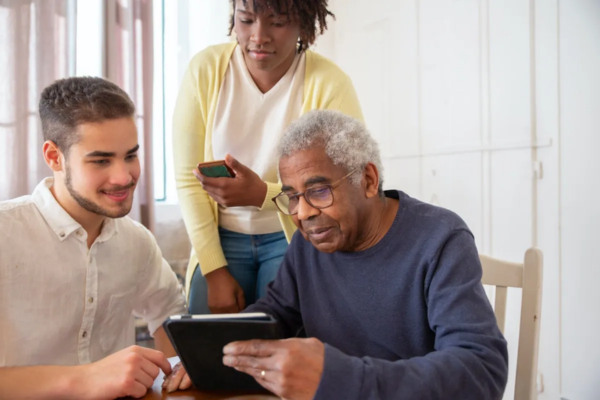
The History and Future of Sapphic Love Stories: An Interview with Amelia Possanza
November 13, 2023
Queering Language, Space, and Time with Colette Denali Montoya of the Lesbian Herstory Archives
November 17, 2023LGBTQ+ massage therapists are creating new spaces for queer and transgender patients to feel not just accepted but seen. As practitioners work to craft gender-affirming spaces, there are multiple tactics that LBGTQ+ clients can use to ensure adequate care.
Frances Reed, a massage therapist and educator in Washington, D.C. is teaching a new generation of LGBTQ+ inclusive practitioners, as well as leading medical research behind chest binding health.
Washington D.C. is the only state or district that requires LGBTQ+ competency training for massage therapy licensure, says Reed. Anyone not living in the D.C., is left with the burden of educating therapists on transgender and queer care.
Reed teaches that long-term binder compression can cause upper chest and back pain, as well as other serious health issues such as shortness of breath and loss of sensation in arms or fingers. Massaging the chest area can help mitigate chronic pain and significantly increase quality of life for binding individuals.
To make sure that transmasc and genderqueer folks are receiving adequate care, Reed suggests bringing their binders to the session.
“Some massage therapists don’t know what a binder really is,” says Reed. “So they imagine something that is not usually accurate, and that will affect how they might go about treating pain that you’re having from binding.”
Thomas Lavi, a transgender massage therapist based in Oakland, California, says those recovering from postoperative top surgery, must discuss their physical limitations or recovery methods with their therapists.
“Often your range of motion is limited to the parallel with your shoulder, you wouldn’t wanna stretch someone up above their head,” says Lavi.
Again, Lavi stresses that many practitioners won’t be familiar with these limitations, so patients must be prepared to educate them on the main protocols of post-operative care.
For those unable to access an LGBTQ+ specialist, Lavi says there are three things to do and look for when looking for an inclusive therapist: check their vibe, check their license, and make sure they respect draping and clothing techniques.
“You have the autonomy to wear anything that you want and any trained massage therapist should be able to work with articles of clothing,” says Lavi. “That’s totally okay. It shouldn’t affect the impact of the massage and if they tell you that it does, they’re lying and you shouldn’t work with them.”
Reed says that gender affirming therapy offices don’t just accept transgender existence but make transgender clients feel seen and heard.
“When spaces understand what it is to be trans in the world socially, what it is to be in a transitioning body, are comfortable talking about bodies in language that de-emphasizes gender; you’ve actually created an actively affirming space, not just a space without discrimination or harassment,” shares Reed.
For those concerned about cost, Reed says that transgender and queer therapists often offer a sliding scale or scholarship system.
“It’s hard to be really focused on queer and trans community and not see the economic disparity that exists and so most of us tend to respond to that with some kind of financial model that allows for support of people who can’t afford the full rate,” says Reed.
Since many massage therapists lack in-depth knowledge of transgender and queer care, Lavi and Reed suggest finding an LGBTQ+ massage specialist.
“We’re having to teach our doctors what it is to be trans, what it means and what we need and that’s why it’s so special to have a trans therapist who can take that load from you,” says Lavi.





